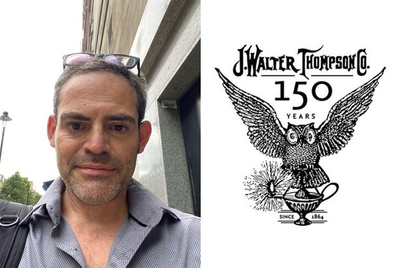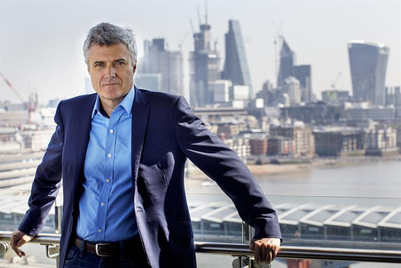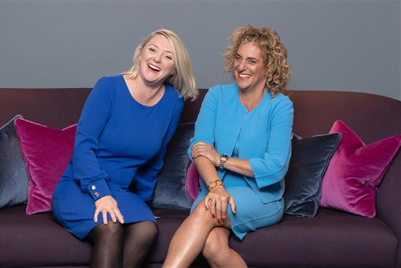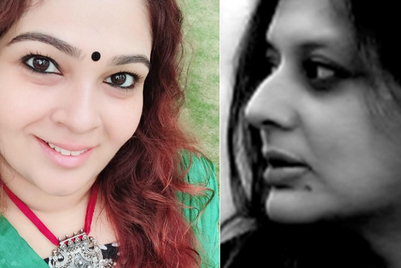As the national creative director of Contract, Ashish Chakravarty is responsible for the creative output of all verticals including iContract, Designsutra, and Core Consulting, across its three offices in Mumbai, Delhi, and Bengaluru. This is his second stint with Contract. He was VP –creative from June 2005 to 2007. In his current stint, he joined Contract nearly two years ago from McCann Worldgroup Delhi, where he worked for almost six years as its creative chief.
He began as management trainee at JWT (then HTA) Delhi in 1993 and left as copywriter in 1995. Over the years, he has worked with Publicis (2004-'05) as head of creative, Euro RSCG as ECD and creative director (2000-'04), and TBWA as copywriter (1995-'96). Over his 22 years in the industry, Chakravarty has won over 200 national and international awards, and across categories. In this Close-up interview, we ask him how he got here, what keeps him going, and what keeps him up at night.
Had you planned on joining advertising industry? What changes have you seen advertising going through since then?
Well, the only reason I joined advertising was that the entrance result of Jawaharlal Nehru University came after that of Indian Institute of Mass Communication. I have been working since 1993. But today, I sense tectonic shifts in the way business is running, and advertising industry is shaping.
Earlier you used to get 30-second ads, now we make four-minute films for digital. But if you look at landmark digital in the more developed digital markets, they are creating different kinds of engagements. They are not just longer format.
When I was judging Clio in 2010, they had one category called Films. They had 14-minute films, and we had 40-second films. They are now in an era where they have a category called 'Traditional Digital', and we are yet to master digital. Look at the way digital was used in the BJP campaign. I am sensing that. This is the second time in my life that I am sensing this shift. The previous one was with print campaigns kicking off in English, and becoming more visual, while Hindi became the preferred language for radio.
I am pretty intrigued with digital right now. The story is the same – but the tools and tricks are changing according to the medium. I think newer ways of telling the same story will emerge.
Who are the people you have enjoyed working with, and learning from?
I have worked with fantastic mentors and bosses. Kaustav Niyogi who was one of the original bad boys of Ogilvy, Prasoon Joshi, Anil Batwal, Piyush (Pandey), Sonal Dabral, Sanjay Sharma, Abhimanyu Mishra, Santosh Desai. I feel blessed because they looked after me, and that is what I try and impart now.
After you joined Contract, the agency has been in news for winning businesses, awards, and hiring people. What was the strategy to resurrect the agency?
The person I had replaced was Ravi Deshpande – a legend in many ways. He was at the helm of affairs for a very long time at Contract. Last time I was in Contract, he had hired me as head of Delhi. In the last couple of years, Contract had not been doing too well in terms of businesses and recognition. I was at McCann when Rana (Barua) joined. We had worked together in McCann in 1998-'99. He was in servicing, and I was in creative. Last year, every office of Contract has picked businesses. Docomo is one of Contact India’s biggest wins in all its 30 years. Delhi Contract is bigger than it has ever been in all its years.
I joined when no one knew what would happen of Contract – there was no scope or play. There were very few people here. They had lost Spice. They had lost Whirlpool, Vatika. There were lots of business losses over the last three years. Our branch head Shivaji (Dasgupta) said the only way is up. First step was to get in business. The first business was won out of Mumbai – Sugarfree. And we won it against McCann, where I joined from.
It is not as if me and Rana are Superman and Batman, and we scooped up businesses. Many good people joined us. I am a great believer in team effort. I had a great team at McCann. After I quit, lot of them disbanded, and a whole lot of them moved here. As we got businesses, we got good talent on board. This talent, and monies, allowed us to pitch for more. Last year until November, we were walking in and winning. (There is) Excitement of building a place – lot of newer brands, people. We were hiring two-three people at senior levesl every month for a stretch of eight to nine months because we were getting businesses.
It is not a Batman story, it is an Avengers story.
My 'Avengers' are Vineet Mahajan, head of art; Mayur Hola, ECD Delhi; Kapil Mishra, ECD Mumbai; and Manoj Jacob, ECD, Bengaluru. It is a mid-sized agency, so the client sees that it is not a Batman but seven or eight people who would passionately deliver.
When new businesses come in, it is not just that you are a pitch machine – you also have to demonstrate work. As it happens in the industry, people started wondering what we were doing -- are we undercutting? There were conversations around to say how it is that we are getting it right. What was working for us was not that we were very smart negotiators and it was not the ‘dealings’, it was our work. The work that we pitched for in Docomo is the work that got produced and it is the same work that won the awards. Same with UTI and Kenstar. This is real work. Dabur gave us many businesses. There was organic growth from within the company. It has been a rocking one-and-a-half years.
Does your role here encompass more responsibilities than an NCD?
I was asked if I would like to become a CCO. I thought what would it change from whatever I am doing? I chose to not call myself a CCO ever since some people started calling themselves CCO. I am completely happy being an NCD. At one point of time, there used to be one creative director in an office.
There are essentially four roles in an agency -- you are not responsible for your own work, which means you are a trainee or a writer; you are responsible for your own work which means you are copywriter or art director; you are not just responsible for your own work but for the team such as supervisor, ACD, CD. And then, you are responsible for the work of the branch or company. I was first of the block to become a creative director straight from a writer.
Within two years, I was given a branch responsibility, and I was not ready for it. I was attending finance meetings. I went out from McCann when it was bohemian into Euro RSCG Bangalore where I was part of discussions about next growth initiatives. I delayed taking up a national-level responsibility fearing this scenario. Had I not spent those six years with Prasoon (Joshi), I would not have been ready. Now I become ACD of the office I am in for the day. Eventually, this is what it is.
What is the focus area for Contract right now?
I would want to focus on my Bengaluru office. There we have only one big business (Air Pegasus). I would want us to work little more closely with the team there.
Also, we have to manage new business from within actual delivery lines, and maintain our standard. Last year, our lowest would have been a six on 10. It would be a challenge this year to maintain that. There are lot of projects we do as well. For instance, we did a project for Paytm, and now they are with McCann. We are doing something for TrueCaller right now, and I do not know if they will continue with us. Their challenges also keep changing, and they choose the agency accordingly. The other challenge would be to up the creative output for certain brands that have now tasted creative success with us.
Which medium do you enjoy working on the most?
I enjoy radio. I like writing for radio. But I don’t know whether I have more awards for films or radio. Radio has given me a lot. The first ads that brought me into the spotlight were print ads. In the first Mirchi Kaan awards, I had two less than Prasoon Joshi. The first time I judged an award show, it was for radio category. For Goafest, I am the standard jury chairman for radio. I have hired many people who are good in radio. That said, I am good in films as well.
What are the challenges that Indian ad industry faces currently?
Apart from talent moving to various other options, money available to us has gone down. There is this new category in Goafest called Branded Content. News channels ask clients for their pain points, and they create engaging content to address it in a budget lesser than an ad agency. I was told that the organised sector for branded content is Rs 11,000 crores. This money should have come to advertising.
Design houses are offering specialist services. Advertising agencies, except for one or two who have bought out digital agencies, have not captured the digital wave and clients like to go to specialists. Filmmakers like Yash Raj are offering solutions to our clients as well. You have creative services, and crowdsourcing companies who are offering exactly what we do – content, and creative solutions. Packaging is not coming to agencies anymore, and going to design houses. You are not dealing with Indian competition but also foreign competion. You are dealing with foreign marketing company consultants – specialists who look at communication as part of business strategy.
Contract was so ahead of its times that Malgudi Days was produced by it.
We, within our community, are fighting harder for smaller pieces. I am sensing the change, and I wonder where it will go. If we don’t figure it out, we will be fighting harder and harder. Then we will only be called for scripts, not as their partners in marketing.





.jpg&h=334&w=500&q=100&v=20250320&c=1)

.jpg&h=334&w=500&q=100&v=20250320&c=1)
.jpg&h=334&w=500&q=100&v=20250320&c=1)


.jpg&h=334&w=500&q=100&v=20250320&c=1)










